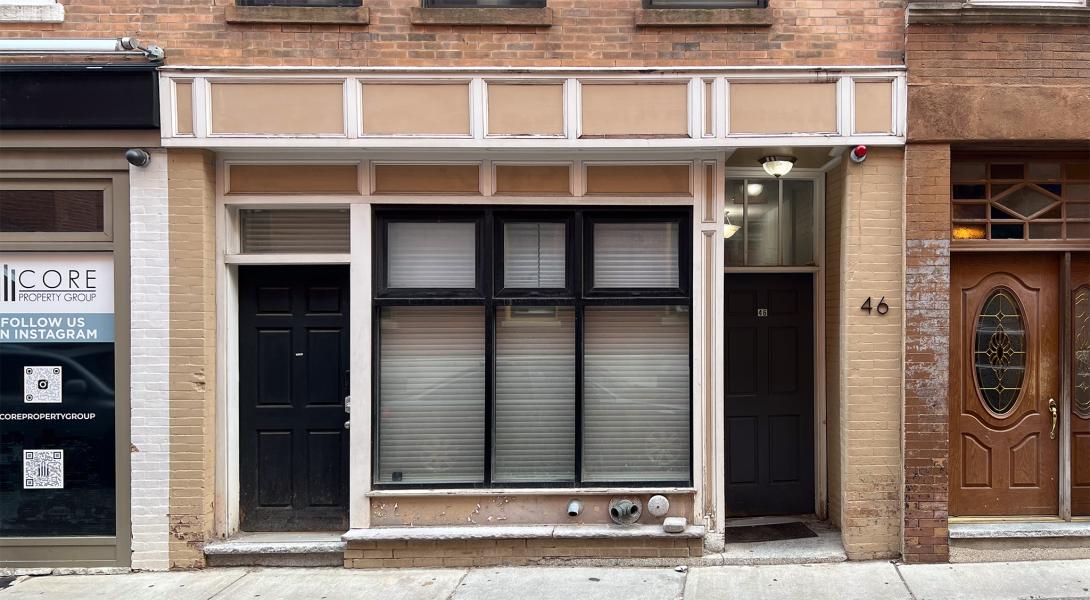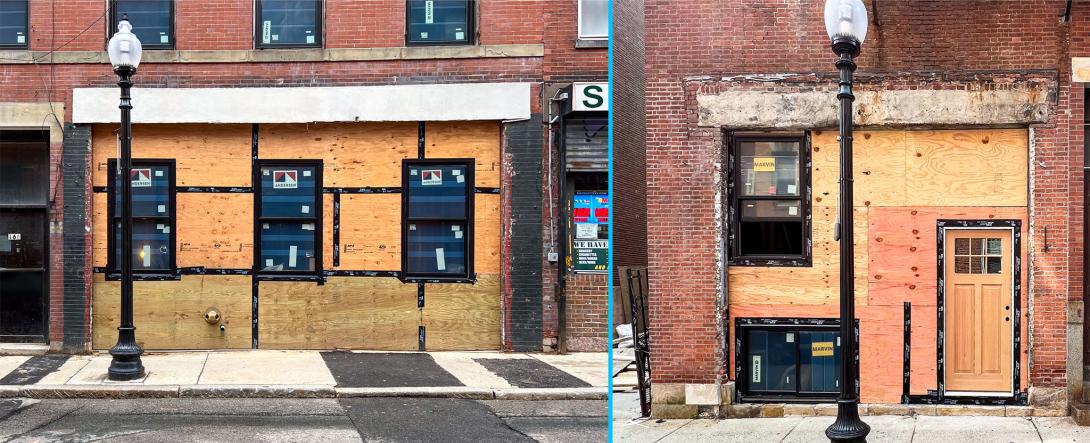More storefronts lost
Walk around the North End and you can't help but notice all the odd first-floor apartments that used to be storefronts. As semi-public spaces, those storefronts were a part of the fabric of the neighborhood and played a vital role in fueling the vibrant community that exists here.
In recent months, two more storefronts on Salem Street were converted from semi-public to private spaces. Housing is good and I'll be happy for our new neighbors when they move in. But an activated street-level community is more important than squeezing residential units into every possible space.
The term "sidewalk ballet" was used by Jane Jacobs to describe the way that people interact with public and semi-public spaces as they go about their daily life. When the semi-public spaces are converted to private, the ballet breaks down. The public spaces at the edge of now-private accommodations - the sidewalks - become dull.
North Ender Nicholas Dello Russo wrote an excellent article that explained the importance of street-level storefronts and the role they played for NorthEndWaterfront.com a few years ago: Life On The Corner: Storefront Society.
Neighbors met in the shops and shared local news and gossip. Teenagers found part-time employment in these shops and the constant street activity made our neighborhood safe.
In another article, Dr. Dello Russo wrote about what makes the North End "special and safe":
In order to maintain what we love about living in the North End we need local cafes, restaurants, coffee shops and even taverns. Places where locals and visitors can meet, gossip and engage in an urban village kind of life.
The loss of storefronts also means fewer goods and services are available within the neighborhood. Leaving the neighborhood for basic needs means relying a car for many households.
Storefront → apartment conversions aren't the only type of conversion that is problematic.
A monoculture of businesses - where a single, repeatable business model is exploited by more and more businesses, feeding on each others' success - means locals are less likely to patronize each of the establishments. This forces the reliance on a larger and larger stream of visitors to sustain the model as more and more businesses convert.
Finally, the conversion of businesses with public accommodations (think groceries, taverns, etc) to private businesses (think real estate offices, restaurant headquarters) means losing every public benefit except the tax rate - but we don't even get housing in return.
Strong Towns is an excellent resource for more on the value of businesses and semi-public spaces in communities. They even have an article specifically about how storefronts create the foundation for great cities. But also, take a walk down memory lane and think of all the businesses you used to go to, that are now gone, and weren't replaced by another business that residents could use. Everybody's list is different.
(Photo credit: Nicola 108)
I'll be asking the neighborhood councils/associations to explore whether they could take the effects of conversion into account when approving zoning variances - which these conversions inevitably need in the North End (FAR, Parking, etc).
But it's critical that we understand what's motivating the owners of these properties to do the conversions in the first place. The recent conversions on Salem Street mentioned earlier in the article both sat unused (if not empty) for years - hinting at a related and very serious problem with the health of the small business community.
If you've ever eaten at Tenoch, you have Dr. Dello Russo to thank. Not because he runs the restaurant, but because as the owner of 3 Lewis, he refuses to convert the first floor to residential - even though doing so would be financially lucrative for him. He understands the intangible value of street-level businesses to the community of which he is a part. But we can't rely on the goodwill of property owners.
We need to use whatever levers are available to us to incentivize property owners to make the choice that's best for the neighborhood. For the community.



Comments
Many great points. Sorry to have lost hardware, florist, groceries, fruit/veg shops, local pharmacy. We need more than restaurants as our business base.
Add new comment